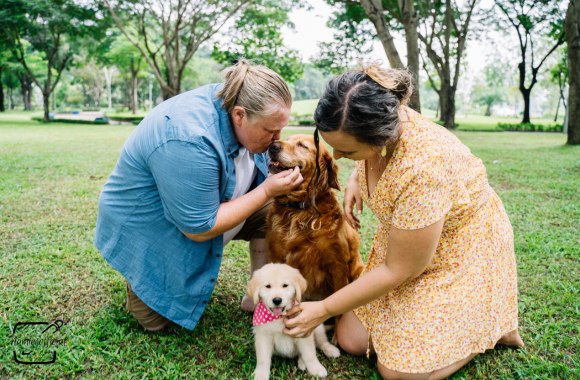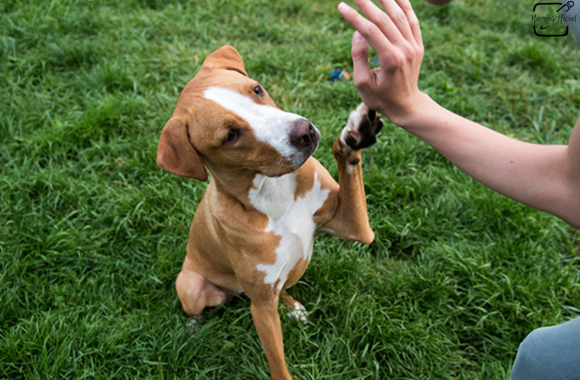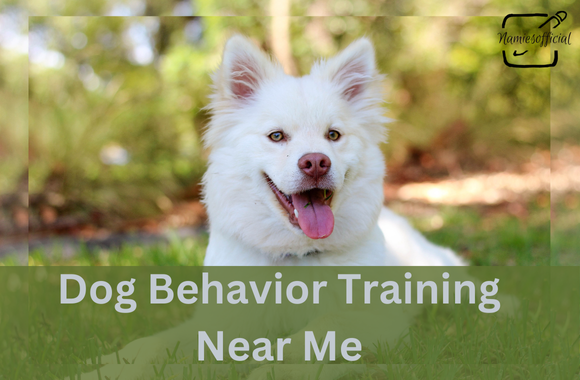Dog behavior training is essential for developing a well-mannered and happy pet, helping them navigate social situations and live harmoniously with their owners. If you’re searching for “dog behavior training near me,” you’re probably looking for professional assistance to help your dog overcome behavioral challenges or to enhance their obedience skills. In this guide, we’ll explore the basics of dog behavior training, the benefits, and how to find the best training program in your area.

What is Dog Behavior Training?
Dog behavior training focuses on modifying unwanted behaviors in your dog while reinforcing positive ones. This can range from basic obedience training—like teaching commands such as “sit,” “stay,” and “come”—to addressing more complex issues like excessive barking, separation anxiety, aggression, or destructive habits.
Training helps dogs understand the boundaries of acceptable behavior and builds a stronger relationship between dog and owner through communication and trust.
Common Behavioral Issues Addressed in Training
- Excessive Barking: Constant or unnecessary barking can be frustrating for owners and neighbors. Training helps to teach your dog when barking is appropriate and when to stop.
- Jumping on People: While some dogs jump to show excitement or affection, this behavior can be overwhelming, especially for small children or visitors.
- Leash Reactivity: Dogs that pull on the leash or react aggressively toward other dogs or people while walking can benefit from specialized training to teach them how to behave calmly.
- Separation Anxiety: Some dogs become anxious or destructive when left alone. Behavior training can help them feel more secure and relaxed when their owners are away.
- Aggression: Aggression towards people or other animals can be a serious issue, but with the right training, even aggressive dogs can learn to become calmer and more sociable.
- Housebreaking Issues: For puppies or even older dogs that haven’t been properly house-trained, behavior training can teach them where and when it’s appropriate to relieve themselves.

Benefits of Dog Behavior Training
- Improved Obedience: Dogs learn to respond to commands, making them easier to manage in various situations, whether at home or in public.
- Better Socialization: Training helps dogs become more comfortable around other people, dogs, and environments, reducing anxiety or aggression.
- Bond Building: Training deepens the bond between you and your dog, fostering trust and mutual understanding. It also boosts your dog’s confidence in navigating the world around them.
- Peace of Mind: A well-trained dog is less likely to engage in dangerous or destructive behaviors, giving you peace of mind when they are around other pets or people.
- Reduces Problem Behaviors: Whether your dog is chewing furniture, barking incessantly, or jumping on guests, training helps correct these behaviors through positive reinforcement.
How to Find Dog Behavior Training Near You
When looking for “dog behavior training near me,” there are several steps you can take to find the right program for your dog:
- Start with Online Searches: A quick search using terms like “dog behavior training near me” or “local dog trainers” can give you a list of nearby options. Check the websites for details about their services, training methods, and specialties.
- Ask for Recommendations: Reach out to your veterinarian, pet store staff, or friends with well-behaved dogs to get recommendations for reputable trainers in your area.
- Check Reviews and Testimonials: Look for online reviews from other dog owners to see what kind of experiences they’ve had with the trainers you’re considering. This can help you gauge the trainer’s success in handling various behavioral issues.
- Look for Certifications: The best trainers are certified by reputable organizations such as the Certification Council for Professional Dog Trainers (CCPDT) or the International Association of Canine Professionals (IACP). These certifications indicate that the trainer has the necessary knowledge and experience to work with dogs effectively.
- Visit the Facility: If the training is done at a center, it’s worth visiting in person. Make sure the facility is clean, well-maintained, and has a positive environment for dogs.
- Evaluate Training Methods: It’s important to choose a trainer who uses positive reinforcement techniques rather than punishment-based methods. Positive reinforcement builds a trusting relationship and is more effective in the long run for correcting behavior issues.
- Consider Group Classes vs. Private Sessions: Some dogs may benefit from group training classes where they can socialize and learn in a group setting, while others with more serious behavior issues may need private one-on-one training.
What to Expect from Dog Behavior Training
- Initial Consultation: Most trainers will start with an evaluation of your dog’s current behavior to determine the best approach for training. They will ask about your dog’s history, triggers, and the specific issues you’re hoping to address.
- Customized Training Plan: Based on the assessment, the trainer will develop a plan tailored to your dog’s needs, whether it’s basic obedience, socialization, or addressing a particular behavioral issue.
- Homework: Training doesn’t just happen during the session—it requires reinforcement at home. Trainers will give you techniques to practice regularly with your dog to ensure the training sticks.
- Follow-Up: Depending on the severity of your dog’s behavior, multiple sessions may be necessary. Many trainers also offer follow-up sessions to assess progress and adjust the training plan as needed.
1. What is dog behavior training, and why is it important?
Answer: Dog behavior training focuses on teaching dogs proper socialization, obedience, and manners to improve their interactions with humans and other animals. It’s essential for preventing behavioral issues and strengthening the bond between dog and owner.
2. What types of training programs are offered for dogs?
Answer: Training programs can vary but often include obedience training, behavior modification, puppy training, and socialization classes. Some trainers may also offer specialized training like agility, therapy dog prep, and leash etiquette.
3. How long does it usually take to see results in my dog’s behavior?
Answer: Results depend on the dog’s temperament, age, and the specific behavior issues. Many owners notice improvements within a few weeks, but more challenging behaviors may require consistent training over several months.
4. What should I look for when choosing a dog behavior trainer near me?
Answer: Look for trainers with certifications, experience, positive training methods, and good reviews. A trainer’s ability to communicate with both dogs and owners is also key to success.
5. Can older dogs still benefit from behavior training?
Answer: Yes, dogs of any age can benefit from training! While puppies are often more adaptable, adult and senior dogs are fully capable of learning new behaviors and commands with patience and positive reinforcement.
Conclusion
Dog behavior training is crucial for ensuring your dog is well-mannered, safe, and confident in various environments. If you’re searching for “dog behavior training near me,” take the time to research local trainers, check reviews, and visit potential facilities to find the right fit for your dog’s needs. The right trainer will not only help correct problem behaviors but also enhance the bond between you and your dog, leading to a more harmonious and happy relationship.
Related content :
get more insights on site

